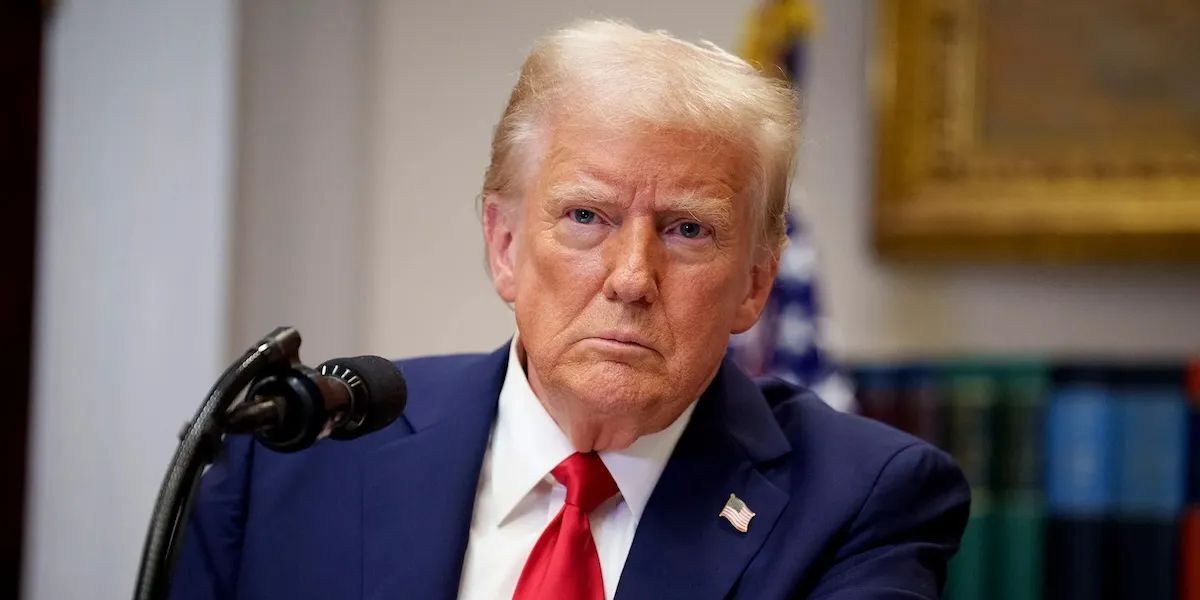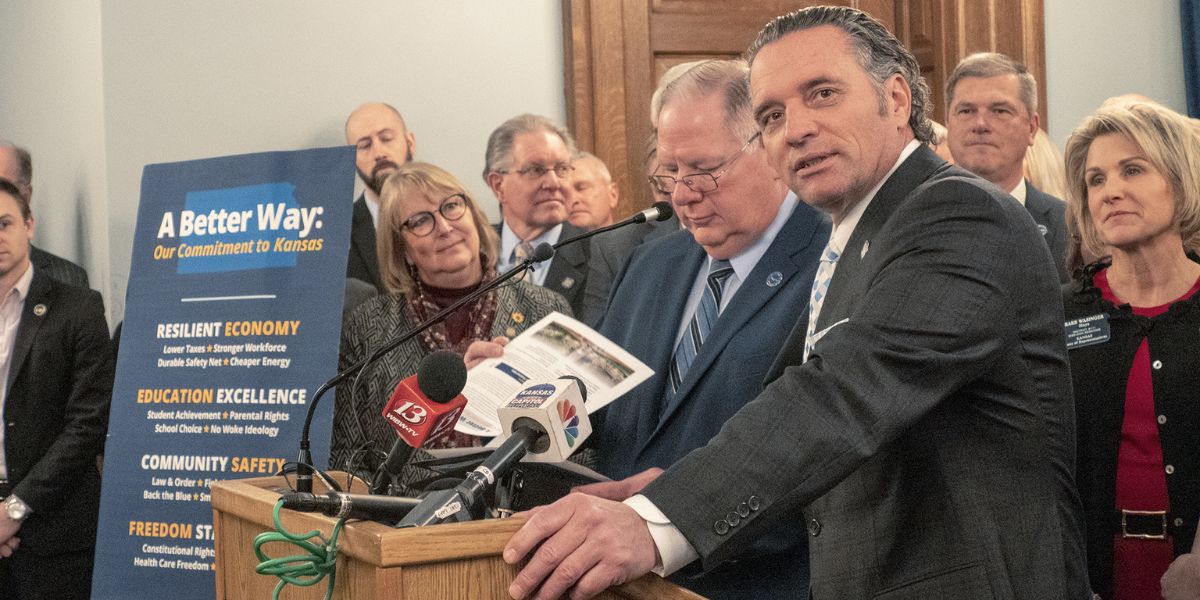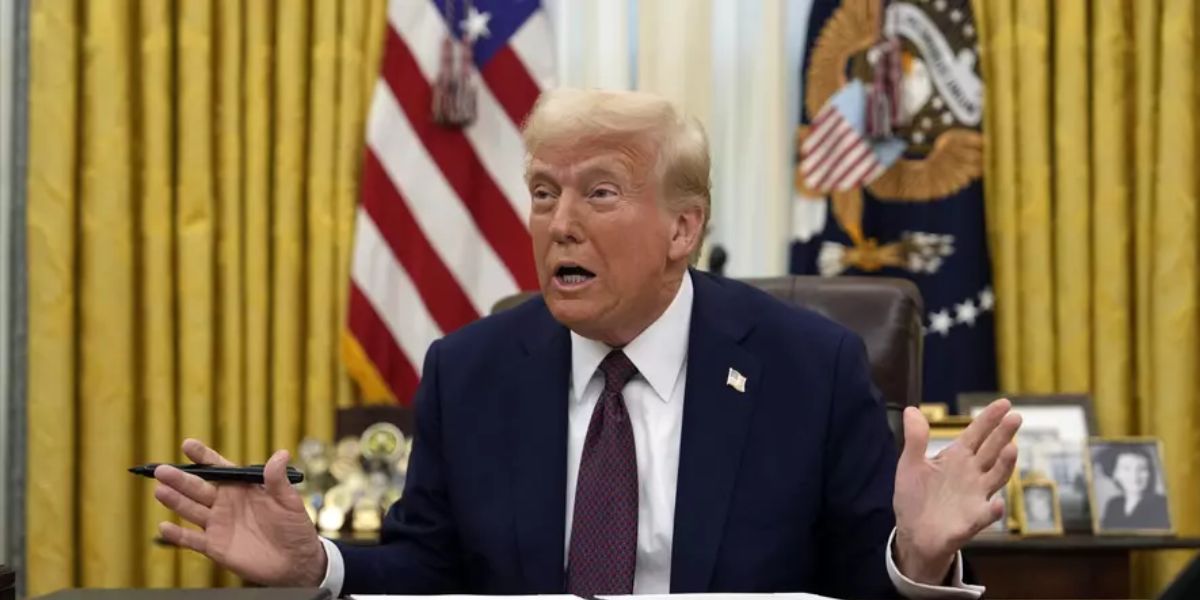President Donald Trump’s attempt to halt federal funding while his administration undertakes a comprehensive ideological review to dismantle leftist policies was momentarily stopped by a federal judge on Tuesday.
With states, schools, and organizations that depend on trillions of dollars from Washington feeling anxious and confused due to uncertainty around a vital financial lifeline, the order completed the most turbulent day for the U.S. government since Trump returned to office.
Just minutes before the funding freeze was set to go into effect, U.S. District Judge Loren L. AliKhan stopped it.
A complaint filed by nonprofit organizations that accept government funding triggered the administrative stay, which is in effect until Monday afternoon.
That morning, there will be another court hearing to discuss the matter.
The order, which leaves open a possible constitutional conflict over control of taxpayer funds, was not immediately reacted to by the White House. Trump’s actions were characterized as arbitrary and unlawful by Democrats who have found it difficult to establish themselves during his second term.
The decision to stop loans and grants was made, according to administration officials, to make sure that spending adheres to Trump’s latest executive order action.
The Republican president wants to stop diversity, equity, and inclusion initiatives, increase the production of fossil fuels, and eliminate safeguards for transgender individuals.
The Office of Management and Budget’s ambiguous memo and the White House’s partial responses throughout the day, however, left lawmakers, public officials, and regular citizens unable to determine which programs would be impacted by the suspension.
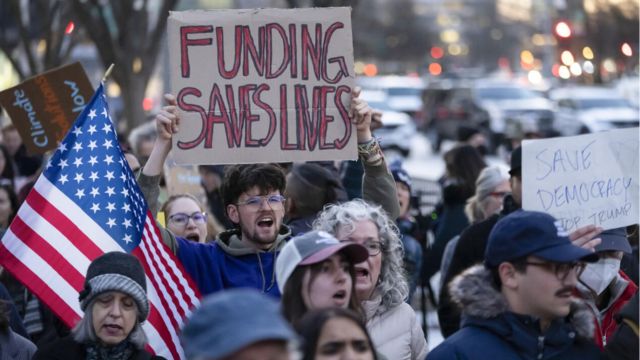
Layoffs or delays in public services could result from even brief financial disruptions.
David Smith, a spokesman for the Shawnee Mission School District in Kansas, one of the innumerable districts that receive federal funds, said, “This kind of came out of the blue.” They are currently attempting to interpret it “based on zero information.”
Democrats contended that the president lacked the authority to unilaterally halt the use of funds that Congress had appropriated. Democratic attorneys general from 22 states and the District of Columbia filed their own lawsuit shortly after AliKhan’s decision, aiming to stop and permanently stop the administration from severing federal funding.
“There is no question this policy is reckless, dangerous, illegal and unconstitutional,” New York Attorney General Letitia James stated.
As she issued her order, AliKhan, who was appointed by President Joe Biden, questioned how much the specifics of the funding freeze had been finalized.
“It seems like the federal government currently doesn’t actually know the full extent of the programs that are going to be subject to the pause,” she stated.
Tens of thousands of members nationwide may be impacted, according to Jessica Morton, an attorney with the National Council of Nonprofits, the organization that filed the lawsuit.
Since the plaintiffs had not identified who would lose funding right away if the freeze took effect, Justice Department lawyer Daniel Schwei contended that it shouldn’t be postponed.
Programs that directly help Americans, including food stamps, student loans, Social Security, and Medicare, will not be impacted, according to Trump administration officials. However, they occasionally had trouble painting a whole picture.
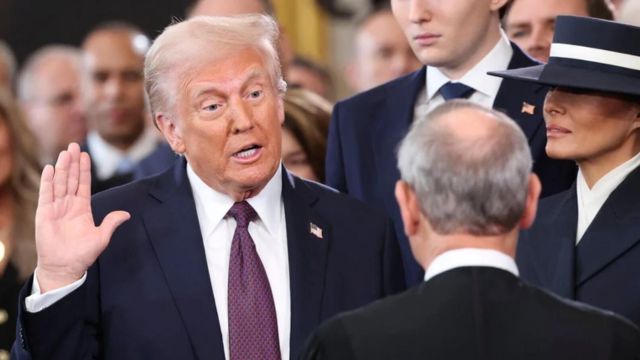
The government then clarified that Medicaid was immune from the moratorium, although White House press secretary Karoline Leavitt first refused to state this.
The consequences of Trump’s attempt to halt financing were being felt far from the nation’s capital, despite his vow to completely transform Washington if elected to a second term.
Meals on Wheels, a federally funded organization that provides food to the elderly, was concerned about being disconnected.
applications. Prichard, Alabama, officials were afraid they wouldn’t get the infrastructure money they needed to repair their drinking water system that was leaking.
Republican lawmakers in Louisiana stated that they were “looking for clarity” to make sure that nothing was “threatening the state’s financial stability.”
A 51-page spreadsheet that was distributed to federal agencies detailed the entire breadth of the administration’s assessment.
Every line represented a distinct government program, ranging from special education to workforce development for Tribes to pool safety.
For each item on the list, officials were instructed to respond to a series of yes/no questions, such as “does this program promote gender ideology?” or “does this program support or encourage abortion in any way?” By February 7th, responses are required.
Potentially, trillions of dollars are being examined. Additionally, grants that have been granted but not yet spent are to be stopped if they could potentially contravene one of Trump’s executive orders.
The most recent instance of Trump using his authority over the federal government to further his conservative agenda is the attempt to impose a funding pause.
Trump Signs Laken Riley Act, Launching Next Phase of Immigration Crackdown
This time, Trump is delving deeply into the bureaucracy, unlike during his first term when he and many of his inner circle were unfamiliar with Washington.
As states reported issues with the Medicaid financing system, where authorities request reimbursement for providing healthcare to impoverished populations, concerns about disruptions in government services were intensified.
Trump Administration Freezes Federal Funding for Public Loans, Grants, and Aid
Democrats linked the funding suspension to their criticism of the Trump administration. However, Leavitt promised that the portal would soon be operational again.

